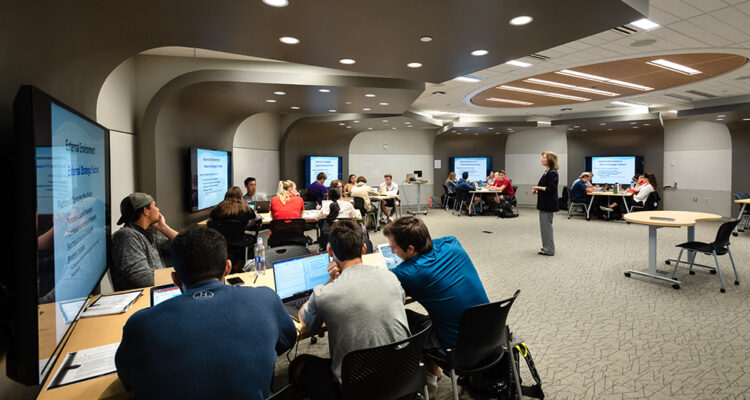Given that I graduate in a short six weeks, I have been doing a lot of reflecting about my time at Fairfield. The memories I’ve made with friends, the interesting experiences I’ve had here, the opportunities that this school has given me, but most importantly, I have taken a lot of time to focus on the education at Fairfield and what I have gained. More specifically, which classes have I been able to learn the most and soak up all the information a professor provides. All of this thought has centered around one common denominator; the classes I have learned the most in, are the classes that require no technology use.
It’s always the worst while a professor is presenting a syllabus and you feel the entire class sigh when the professor says, “there will be no use of laptops, or phones, of any kind. This is a pen and paper class.” But in reality, I truly believe this is a blessing in disguise.
Think to yourself … when you have access to your computer during a lecture are you really paying attention to class? Or are you texting in your multiple group chats, browsing fashion websites, watching the latest sports highlights, etc … c’mon, I know what you are thinking because I do the same things.
As college students our lives are absolutely crazy. The balance between five classes, a social life, club sports, maybe a relationship and so much more gets wild. Our minds run at a Usain Bolt speed, swirling with the next thing. But, when a professor really says no technology at all, it forces your brain to actually sit there for an hour and fifteen minutes and truly soak in the information you’re learning. Not only is no technology helpful to focus your brain but it also is helpful to your learning process as a whole. Research done by Princeton and the University of California, Los Angeles has found that writing lecture notes on paper vs typing lecture notes on a computer brings huge shifts in what you remember and how you perform on tests.
“Learning researchers hypothesize that, because students can type faster than they can write, a lecturer’s words flow straight from the students’ ears through their typing fingers, without stopping in the brain for substantive processing. Students writing by hand, by contrast, have to process and condense the material if their pens are to keep up with the lecture,” writes a Brookings article.
Just like the students at Princeton and The University of California, Los Angeles, I find myself exponentially more likely to remember content when writing it down on paper versus aimlessly typing on my laptop. When I put my technology away and focus on understanding the content, things light up like a lightbulb in my brain. For example, in my End of Life Communication course with Dr. Pagano (would highly recommend this course to anyone it is truly amazing,) he strongly discourages the use of technology. Surprise surprise, this has become my favorite class this semester. I have found myself truly able to soak in, process and understand everything we learn about in class. I even found myself talking to my family this Easter break about my class using terms like palliative care, quality of life, the Biopsychosocial model versus the Biomedical model. All terms that if I had my head buried in my laptop, I definitely wouldn’t know.
With that being said, next time you’re rolling your eyes at a no-technology policy, try to appreciate it. Your professor has so much to share and this is the education you are paying thousands of dollars for. Listen up, focus in and see how much your mind will shift.


Leave a Reply